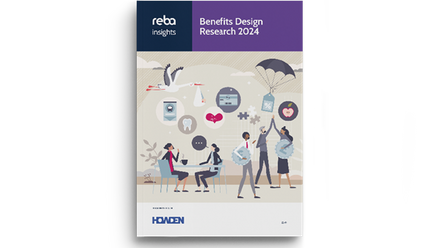REBA’s Inside Track: The human side of work will have the biggest impact on business success

View the full Employee Experience supplement published in The Times in partnership with REBA.
Technology change is business change research due to be released later in November by the Reward & Employee Benefits Association (REBA) and consultants Mercer Marsh Benefits, will report that over half of employers expect further significant organisational transformation over the next two years due to automation, with nearly a third saying this will speed up changes in their business models. Almost half said they are expecting even more adaptations in the day-to-day tasks of workers.
Such enormous automation-driven change has already impacted both business leadership and key talent within organisations. Our survey found that roughly four in 10 employers have brought in new leadership at board level in the past two years, with a third having hired in key talent to drive digital change, with even more such hires on the cards over the next two years.
How people carry out tasks, as well as what tasks they do when working, is adapting and evolving as organisations move from talking digital to living digital. HR teams are having to map out, source and mobilise employee capabilities while rethinking how roles are designed in order to ensure that leaders have the right people in their business to meet these new digital challenges.
But it is not just digital skills that employers are after; social, emotional and enhanced cognitive skills will be in greater demand as automation takes out the need for more basic manual skills that can be carried out by robots and computers.
With nearly half of our survey respondents planning to increase recruitment of employees with these newly required skills, we can see why the jobs market is ramping up. Workers that have the ability to adapt and learn new skills are hugely valuable, which is putting pressure on pay.
However, HR teams are aware that pay alone is a blunt instrument. It may be a quick fix, but it does not always translate into long-term hires because pay does not change culture or enhance the employee experience in a meaningful way.
It is the broader employee experience that will attract, retain and engage talent in a sustainable way. But making the employee experience a good one when so many organisations are in a state of flux, busy formulating new strategies and drawing up business cases for new models of work, is a tough challenge. On the plus side, forward-thinking employers have started to remove old hierarchies in order to introduce more agility between roles and to expand experience and knowledge via lateral job moves, as well as investing in skills development.
Our research found that more than half of HR teams plan to focus on making their organisation a ‘great place to work’, with a big focus on employee wellbeing to drive better corporate cultures. The vast majority of employers will be retailoring workplace perks and benefits to meet needs that have arisen due to the changing nature of work, with a definite switch in emphasis to digital offerings.
Employee social wellbeing has also risen sharply up the HR agenda, with nearly half of employers saying they will be working to improve creating connections and community throughout their workforce. This vital employee experience trend had been growing in recent years but became a far more formalised wellbeing strategy during the pandemic.
While automation is driving huge change in the employee experience of work, it is by focussing on the human side of work that employers will make the biggest difference to business success.
The author is Debi O’Donovan, director at REBA.
This article is forms part of the Employee Experience supplement published in The Times in partnership with REBA.






